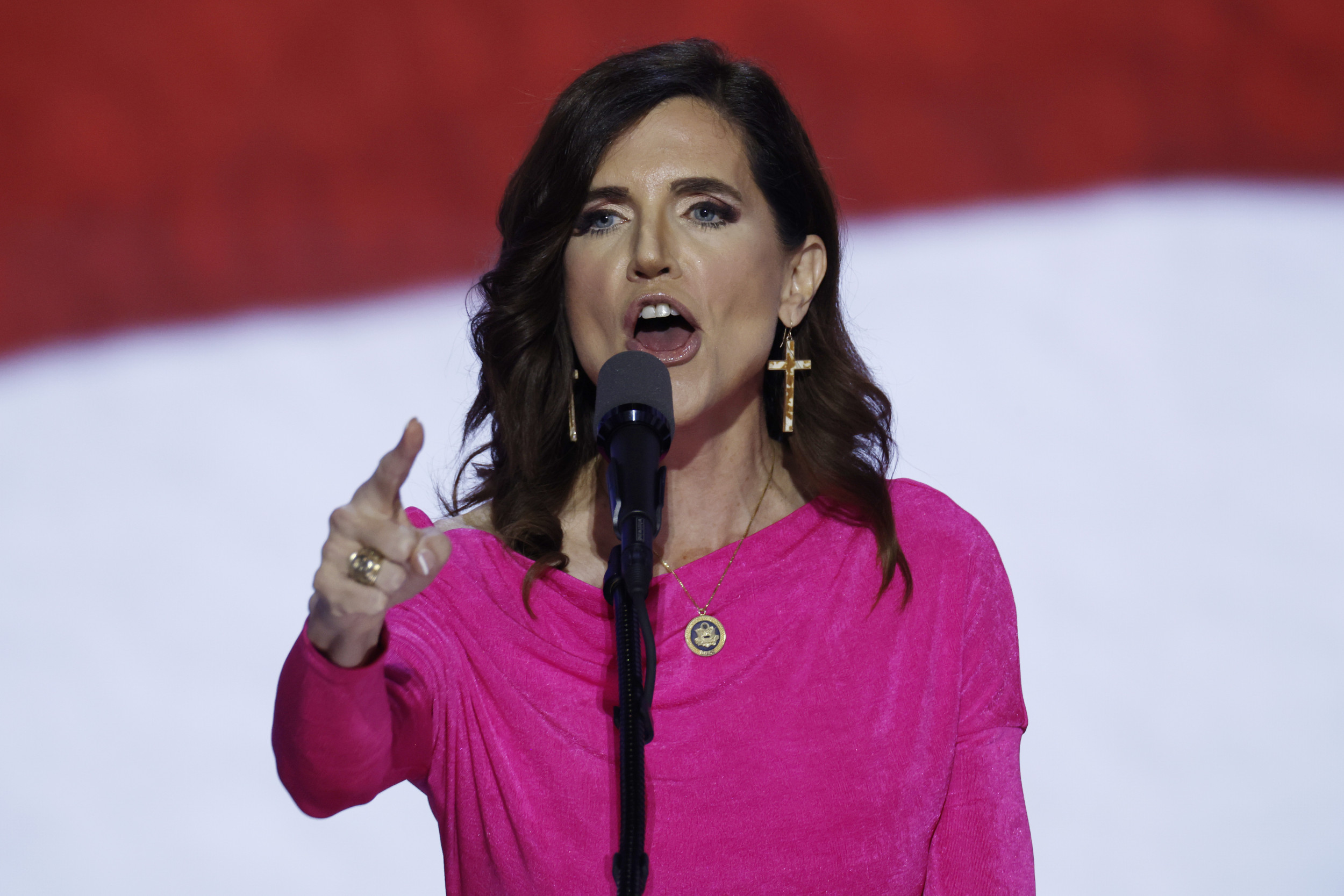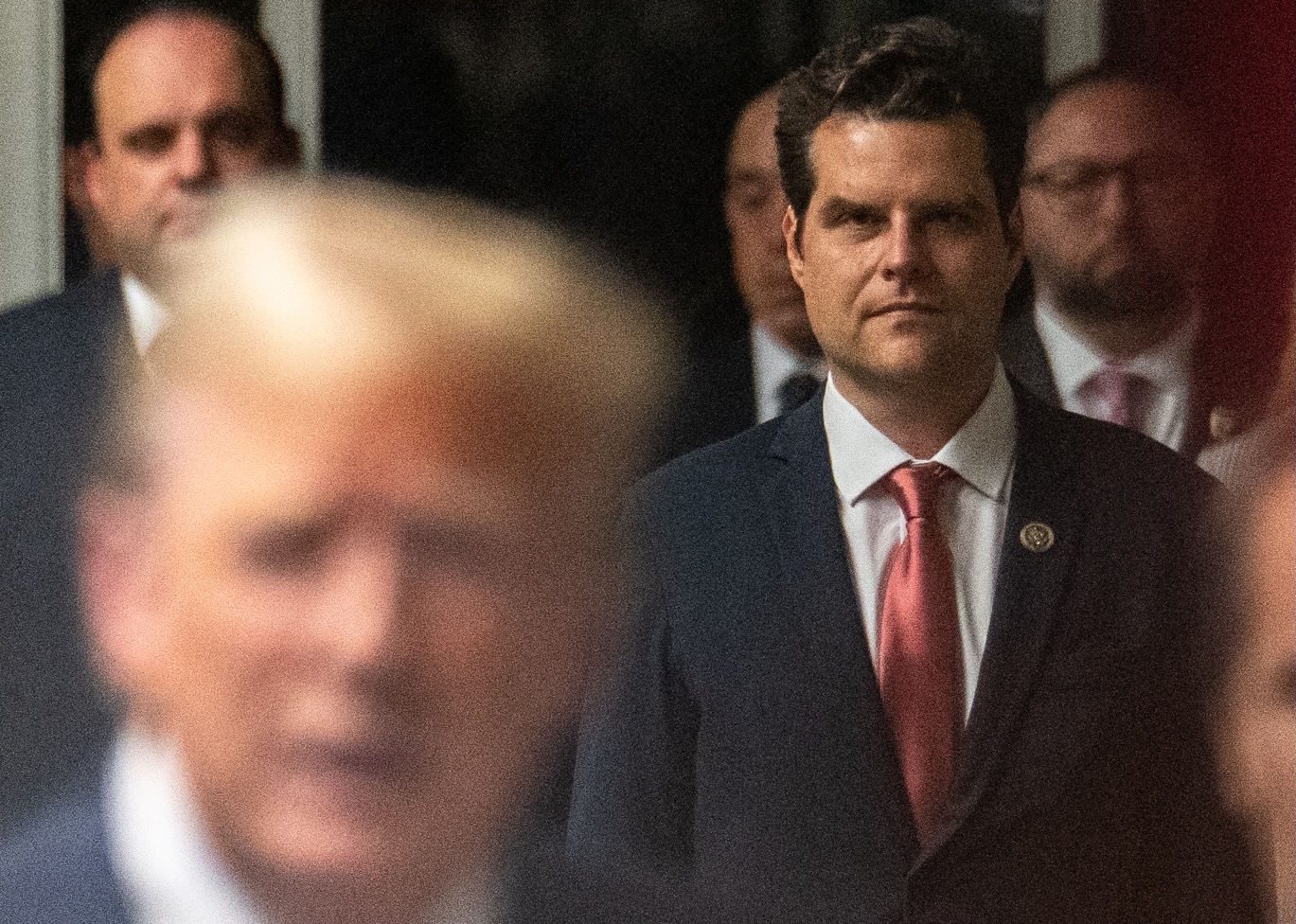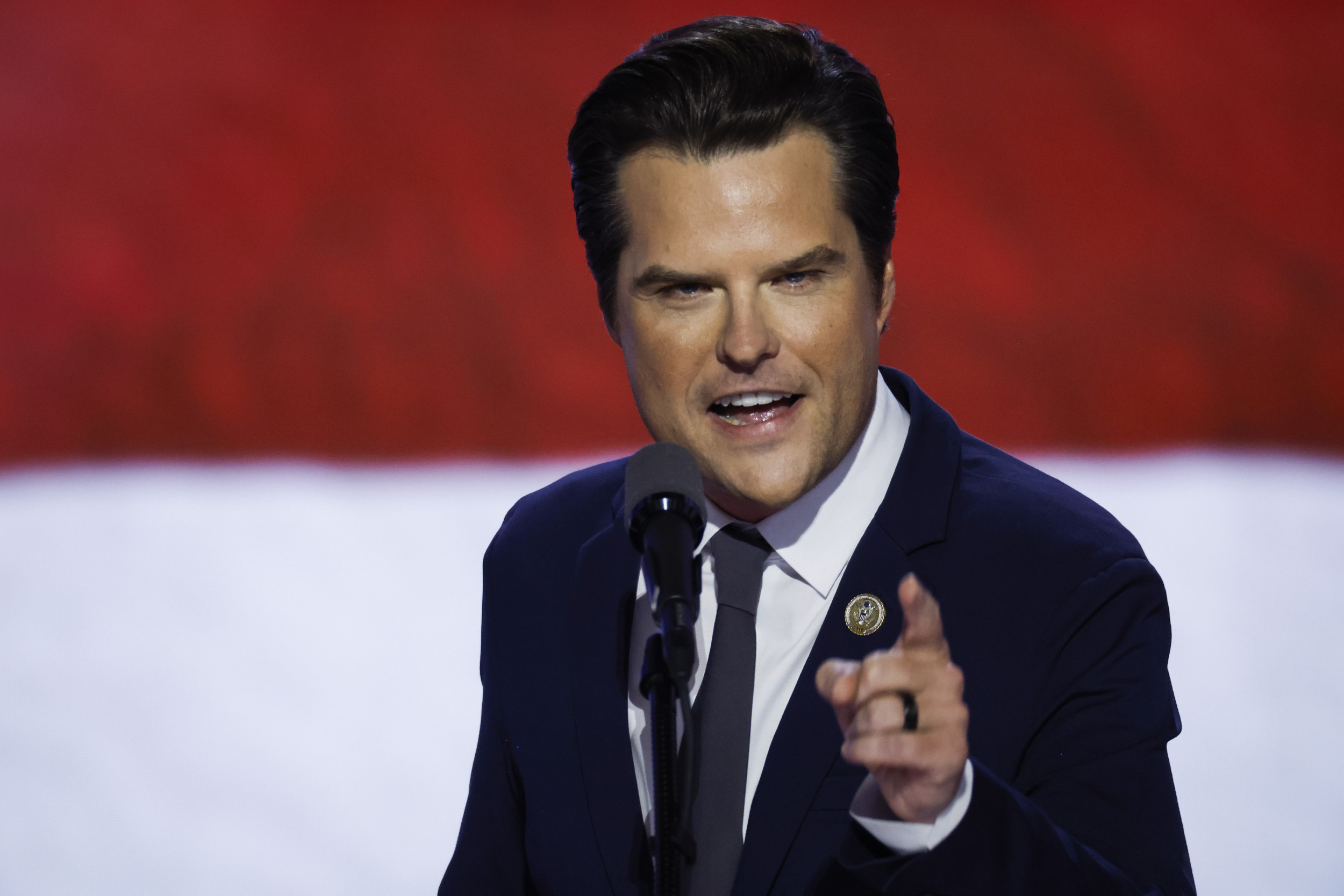The long-running debate about trans athletes competing in women's and girls' sports is finally about to come to a head with President-elect Donald Trump set to take office in January 2025—and promising swift and definitive action.
Trump said at a rally in New York in October that he will "keep men out of women's sports" if elected, echoing a long-running campaign commitment.
In an earlier town hall with women on Fox News, Trump called the participation of trans athletes in women's sports as "so crazy" and an "easy" problem to solve. "We're not going to let it happen...You just ban it. The president bans it. You just don't let it happen. It's not a big deal," Trump said.
It is not clear if Trump was suggesting he use executive action to achieve the ban, or another mechanism at his disposal. In January 2023, he released a campaign video saying Congress would take action.
"I will ask Congress to pass a bill establishing that the only genders recognized by the United States government are male and female—and they are assigned at birth," Trump said in the video. "The bill will also make clear that Title IX prohibits men from participating in women's sports."
Title IX is 1970s-era civil rights legislation that ensures equality of access to educational programs and activities receiving federal funding. It prohibits sex discrimination and is best known for its impact in opening up sports to girls and women.

The recent growth in the number of people identifying as transgender has sparked an intense debate about whether trans women should be allowed to compete in women's sports over a mix of concerns relating to safety and fairness.
The interpretation of Title IX and how it defines sex sits at the heart of this debate. A traditional understanding of sex is that it is immutably biological and defined chromosomally.
But transgender rights advocates seek to establish that it is a fluid category that individuals can assign to themselves, and change from one to another across a much broad span of gender labels depending on how they personally identify.
Males who go through puberty generally have natural physical advantages over females. The flood of testosterone results in greater muscle mass and denser bones and so they are typically heavier and stronger than women. Males are also, on average, taller.
Whilst trans women often take female hormones that reduce these male advantages, they cannot reverse the effects of puberty entirely, and so may retain a physical edge as athletes.
Trans athletes say they just want to exercise their right to play sports like other people and in the sex categories that correlate with how they identify. They also argue that female hormones mitigate their advantages enough to level the playing field.
But many women athletes argue that trans women are, through biological advantage, depriving females of opportunities they would otherwise have access to because they are losing spots in competitions to people who were born male.
And in contact sports especially, such as MMA or rugby, there are serious concerns that the physical advantages of trans competitors will result in women suffering grave harm.
There is also the element of sex-specific facilities such as locker rooms. Some women feel very uncomfortable—and vulnerable—sharing these spaces with people who were born male, even if they have transitioned gender. Trans people say they should not be seen as a threat to women and have a lawful right to use these spaces.
All of these issues and more are at play in what is a highly complex and emotive subject. With Trump suggesting he will take definitive action through a ban on trans women in women's sports, Newsweek asked legal experts: Can he? Here's what they said.

Erwin Chemerinsky, Dean and Jesse H. Choper Distinguished Professor of Law, Berkeley Law
The federal government can make rules with regard to Title IX, which prevents discrimination based on sex for educational institutions receiving federal funds. The Trump administration could adopt rules for schools in this regard. But it has no authority to regulate sports other than this.
Dale Carpenter, Judge William Hawley Atwell Chair of Constitutional Law, SMU Dedman School of Law
President Trump has no constitutional power by executive order simply to "ban" all transgender athletes from playing in all women's sports. There would be no sound basis, for example, for him to bar transgender participation in women's professional sports.
However, he could threaten schools with the loss of federal education money—a powerful tool.
He could direct the Department of Education and the Justice Department to take the position that Title IX prohibits federal funds from going to schools that permit such transgender participation.
Almost all schools at the grade school level through college receive federal money. They wouldn't want to lose federal funding and so may comply with the new administration's guidelines.
Depending on how the order is written, it will encounter potential procedural and substantive legal obstacles.
Procedurally, the DOE must follow administrative procedures required by federal law to change the current interpretation of Title IX. That will take time. Among other things, schools need to be informed of potential loss of federal funds.
Substantively, any transgender athlete exclusion could be challenged on both statutory and constitutional grounds. Statutorily, Title IX prohibits sex discrimination in schools receiving federal funds.
A similar provision barring sex discrimination in employment (Title VII) was interpreted by the Supreme Court in Bostock v. Clayton County (2022) to prohibit discrimination based on "transgender status."
The Supreme Court has not yet extended that ruling to Title IX, so it's an open question whether the justices would do so. Lower courts are split.
Constitutionally, advocates for transgender athletes will argue that categorical exclusions of them violate Equal Protection principles. The Court has also not decided this issue as applied to transgender people. Lower courts are also split on the constitutional issue.

Jennifer Levi, Senior Director of Transgender & Queer Rights GLBTQ Legal Advocates & Defenders (GLAD Law)
School sports rules are subject to Title IX—a federal law that cannot be changed by executive fiat.
Basic civics reminds us that Congress makes laws, courts interpret them, and the president's constitutionally prescribed role is to enforce them. There is no precedent that allows a president to circumvent a federal law.
Established precedent prohibits excluding transgender athletes from school sports. That's only fair and right and a majority of Americans agree that it's wrong to discriminate against transgender people, including transgender student athletes.
That said, we know that our incoming president has taken a hard line on this issue and we have to anticipate he will follow through on what he has said. We expect there will be legal challenges that follow and disagreements about the scope and power of Title 9 will be resolved by federal courts.
It's sad and harmful that the lives of transgender young people have been turned into a political football. Extreme positions taken on both sides of this issue have detracted from the real people whose lives are at stake.
With the election behind us, GLAD Law hopes that rational minds and hearts will prevail.
For many years, the issue of who can participate in school sports has been addressed at the local level by educators, schools, and organizations like the NCAA, which are attuned to this issue.
Title IX authorizes reasonable regulations that preserve sex equality in federally funded schools and ensures fairness and equity for women and girls in sports. Unfairly targeting transgender girls is the most drastic course and does not meet either goal.
Jennifer C. Pizer, Chief Legal Officer and Eden/Rushing Chair, Lambda Legal
The president's direct authority over programs in public schools is limited. It includes giving direction to leadership of the Department of Education, which as an agency is subject to rules and procedures set forth in law.
Whether initiated by a presidential executive order or otherwise, exercises of federal power to control state and local school programs always is subject to constitutional and statutory constraints.
Lambda Legal is in court now against a West Virginia sports ban law.
In that case, the federal Court of Appeals agreed with us that the law discriminated unlawfully against our middle school-age client, who just wants to participate with her classmates on the school track team.
Allowing her to do so disadvantages no one. Consequently, the state failed to justify its discrimination against her. Politicians should not be using kids to score political points, especially kids who already experience high levels of bullying.
The bottom line is that any action President-elect Trump might take in this area would have to pass the nondiscrimination tests that apply when government targets a minority group, and the constitutional test relevant here considers whether actions to exclude that group, as a group, were driven by heated political rhetoric and prevent consideration of those people as individual persons.
Sharon McGowan, CEO, Public Justice
President-elect Trump has already shown that he plans to test the bounds of executive power, but Title IX is the law, and no president can wipe away federal law with the stroke of a pen.
We believe Title IX's protections against sex discrimination clearly protect transgender student athletes. If the president-elect wants to challenge that, he'll need to do so in the courts. If he does so, we're ready to defend the law and student athletes.















)




 English (US) ·
English (US) ·